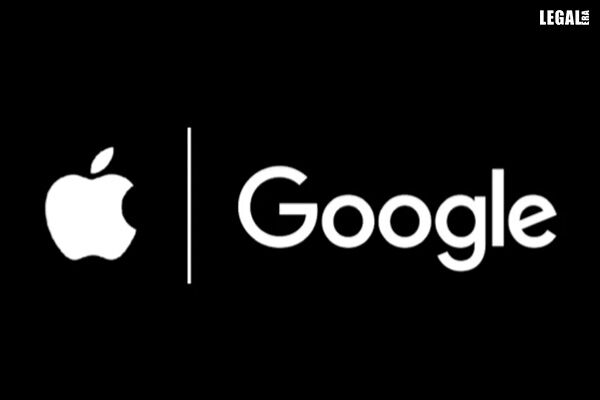
Apple-Google to finalize $1 billion a year AI deal to remodel Siri
The new features are likely to be introduced next year
After extensive evaluation, Apple Inc. and Google are set to finalize a deal that would give Apple access to Google’s technology.
Apple would pay $1 billion a year for an ultrapowerful 1.2 trillion parameter AI model developed by Alphabet Inc.’s Google to manage the long-promised revamp of its voice assistant, Siri.
The iPhone-maker is banking on Google to rebuild Siri’s underlying technology, paving the way for new features in 2026.
The Google model’s 1.2 trillion parameters (a measure of the AI software’s complexity) would outdo Apple’s current models.
Early this year, Apple contemplated using third-party models to handle the task. However, on testing Gemini, OpenAI’s ChatGPT and Anthropic’s Claude, it opted for Google.
Apple intends to use the technology as an interim solution until its own models are powerful. While Siri’s launch is months away, the plans and partnership could be modified.
The custom Gemini system represents a major advance from the 150-billion-parameter model currently used for the cloud-based version of Apple AI. The move would expand the system’s power and its ability to process complex data and understand context.
Referred to as Glenwood, the effort to fix Siri with a third-party model has been led by Vision Pro creator Mike Rockwell and software engineering chief Craig Federighi. The new voice assistant, planned for iOS 26.4, is code-named Linwood.
Under the deal, Google’s Gemini model will handle Siri’s summariser and planner functions, components that help the voice assistant synthesise information and decide how to execute complex tasks. Though some of Siri’s features will continue to be used in Apple’s models.
Operating on Apple’s own Private Cloud Compute servers, the model would ensure that user data remains walled off from Google’s infrastructure. Meanwhile, Apple has allocated AI server hardware to help power it.
Even though the Apple-Google partnership is substantial, it’s unlikely to be promoted publicly. Apple will treat Google as a behind-the-scenes technology supplier, different than the companies’ Safari browser deal, which made Google the default search engine.
Moreover, the agreement also varies from earlier talks about integrating Gemini directly into Siri as a chatbot. While the discussions were held in 2024 and early 2025, those did not materialize.
On the company’s recent earnings, Tim Cook, CEO of Apple, said that Siri could eventually offer additional chatbots beyond the current ChatGPT option.
Meanwhile, Apple is not the only firm to adopt Gemini to power AI features: Snap Inc. and other major companies are building on Google’s Vertex AI platform. But for the iPhone-maker, the move means it lags in AI and is willing to rely on outside technology.
While not desiring to use Gemini as a long-term solution, and despite the company’s AI brain drain, including the head of its model team, Apple’s management intends to keep developing new AI technology. The team is working on a 1 trillion-parameter cloud-based model that it hopes to have ready for consumer applications by 2026.
Apple’s officials believe the firm can reach a similar quality level as the custom Gemini offering, but Google continues to enhance Gemini, and it would be difficult to compete with it.
The 2.5 Pro version of Gemini dominates the large language models, the foundation of generative AI.
Apple is also to pushing its Apple Intelligence and the new Siri to China. Since China’s longtime ban on Google offerings, the localized version of the Siri overhaul is unlikely to rely on Gemini.
Thus, the tailored version of Apple Intelligence will use in-house models, along with a filter developed by Alibaba Group Holding Ltd and adjust the content at China’s behest.
Apple has also been eyeing a partnership with Chinese multinational technology company Baidu Inc. for its AI offerings.